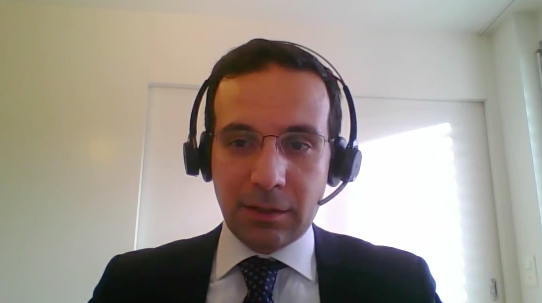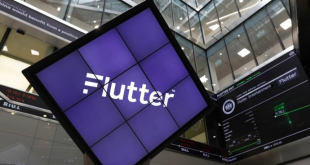Delivering the keynote for the Sports Integrity track at the Betting on Sports Europe – Digital conference and exhibition, FIFA Head of Integrity Ennio Bovolenta spoke about the federation’s steps to protect football from match manipulation and promote integrity.
The ‘Protecting the Beautiful Game’ session, sponsored by Stats Perform, outlined FIFA’s role to prevent outside influences from affecting the sport.
Bovolenta outlined the many ways in which football competitions can be affected, by inaction or omission, and explained that at times it’s not about the final result, it’s about the course of the game as the betting market unfolds. The FIFA executive said that match manipulation is a “cancer for football and sports in general” and that they have a zero-tolerance approach in place for all types of alterations that affect the unpredictable nature of the game.
“FIFA is at the top in the fight against match manipulation, together with its Member Associations and the confederations. To achieve this, we engage them, the partners and all international organizations.
Through the years, FIFA has concluded many memorandum of understandings (MoU) and cooperation [initiatives] with international organizations, recently with the United Nations Office on Drugs and Crime (UNODC), but I could mention many others, like the International Olympic Committee (IOC), or the Council of Europe (CoE)”, he added.
“To achieve the targets more efficiently, we can ensure that each of the 211 member associations are capable of implementing a program at a national level because FIFA alone doesn’t have the structure to control all the games in the world.”
However, the official said that these programs are not sufficient and that sanctioning is also an essential tool to prevent match manipulation from happening again. “Our department is the one [that decides] to conduct an investigation on match-fixing incidents and eventually to report to judiciary bodies, which are in charge of opening formal proceedings and imposing sanctions, and in the case of match manipulation, it’s the Disciplinary Committee,” he explained.
According to Bovolenta, another important factor is to monitor the betting market: “By monitoring the betting markets we can infer very important elements which can lead us to consider matches as suspicious. The fact that a match is suspicious from a betting perspective is not sufficient, this has been already confirmed, but it’s enough to consider that a match has been probably manipulated and deserves an investigation from our side.”
“The first alarm usually comes from suspicious betting which takes place during the game and cannot be explained otherwise rather than with match manipulation. [To monitor] we have an agreement with Sportradar, although they’re not the only partner working with us, which allows us to receive information on any suspicious match within a maximum of three days and allows us to immediately start a further investigation,” he added.
Particularly in Europe, Bovolenta said that corruption is an issue, despite not being the region with the highest rate in the world. “We have an excellent relationship with UEFA in terms of communication and sharing information,” he said. “In Europe, what FIFA and UEFA jointly do is to ensure that all the matches are monitored and the Council of Europe plays an important role in this,” he added.
The Head of Integrity said that there are approximately 34,000 matches per year in Europe to monitor in the betting markets. To name specific examples, Bovolenta discussed Spain’s market, where they monitor around 1,200 games every year and there’s higher levels of corruption. On the other hand, he highlighted Belgium’s FA, and although there are only around 700 games per year, the levels of corruption are significantly lower than in other European countries.
In order for prevention to be effective, and before competitions take place, FIFA has workshops with integrity officers, which are the point of connection with national teams participating in official tournaments. “They play an important role because they can pass the message to the respective teams,” he said. The organization also has briefings with national teams, and for youth teams they host workshops with educational programs on-site. “Young players deserve particular attention because they’re inexperienced and are more exposed to these threats. We want to avoid that, match manipulation can really jeopardize a young player’s career,” he added.
Bovolenta highlighted the 2019 Women’s World Cup in France, where FIFA operated an Integrity Task Force, resulting in no suspicious activity despite the betting volume being 14 times greater than the 2015 edition in Canada.
He summarized the keynote by explaining that in order to report suspicious activity and match manipulation, FIFA currently has a confidential and anonymous reporting system (FIFA BKMS Reporting System), and the FIFA Integrity App for iOS and Android devices.
___________________________
Betting on Sports Europe – Digital is the foremost conference for senior executives from European sports betting operators, providing a forum for high-level discussions that will help to shape the future of the industry.
The fully virtual event will bring together major players from markets across the continent on a single platform, where they will share best practice for tackling the industry’s major challenges and ideas about emerging opportunities.
To register for your free ticket, click HERE.










